How to rebuild a city with Karam Alkatlabe

Meet first year PhD student Jack Ellis, recipient of Wolfson’s new Geopolitics funding award
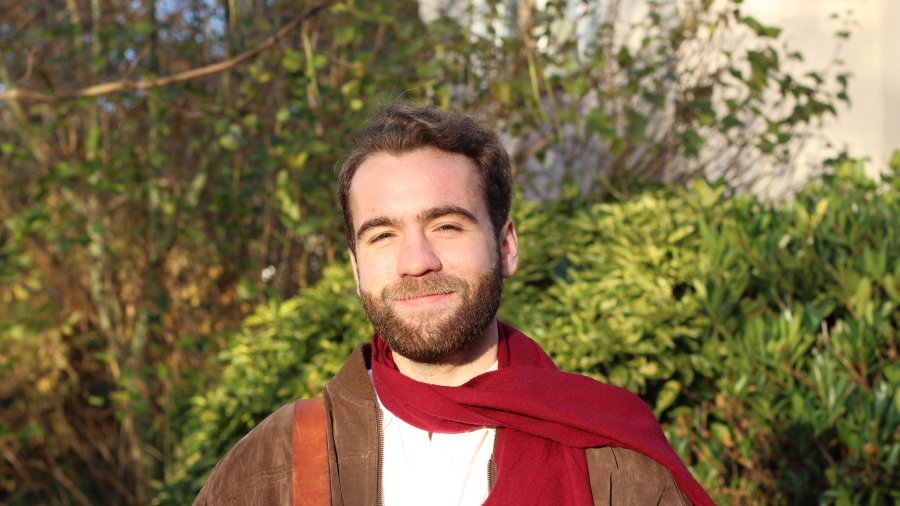

Jack Ellis is a first-year PhD student in Politics and International Studies. He is the recipient of the first Wolfson fully funded PhD Studentship in Geopolitics, an exciting new award that prioritises research addressing major problems of conflict and world order: past, present or future.
Can you briefly summarise your route to Wolfson? What did you do before starting your PhD here?
I am from Nebraska where I did my undergraduate studies in history and political science. After spending some time living in Germany and Poland, I was fortunate enough to pursue my graduate studies in international politics here at Cambridge. I completed my MPhil in Politics and International Studies in 2021 and ultimately decided to come back and carry on my research. Returning to Cambridge wasn’t an obvious decision for me. I was tempted by moving to DC and beginning a career in government; however, I applied for the PhD at the urging of a favourite mentor and gradually came around to the idea. Needless to say, I feel tremendously fortunate to have been given such an amazing research opportunity.
Can you explain your project in simple terms? Why is your subject important or relevant to the world today?
My project investigates the collapse of Europe’s Cold War geopolitical order and the gradual emergence of the security architecture we recognize today. This story is typically told through the prism of US-Russia relations – as the “defeat” of one great power and the transcendence of another. However, I am interested in widening the historical aperture by assessing how British diplomacy operated during this period.
Diplomatic histories of this sort are something of an endangered species in international relations departments, but, in my estimation, the real-world value of such a study is self-evident. Europe today is built atop a geopolitical foundation laid in the 1990s. Russia’s war of aggression against Ukraine is the most salient – and tragic – product of this ongoing historical process, yet it is far from the only downstream consequence.
My research’s importance is premised on the belief that an understanding of the past advances our collective ability to promote peace and security in the present.
You were the first student to receive Wolfson’s Geopolitics scholarship. How did that feel?
Receiving the Geopolitics Scholarship was a tremendous honor. There is no shortage of talented, budding scholars working on Geopolitics (particularly at Cambridge, which has become a real nexus), and I am grateful to the College for seeing promise in my research.
It is desperately important that more funding opportunities in this mold emerge in the coming years. International politics is entering a period of turmoil unseen in two or three generations, and the pursuit of knowledge provides us with the best path forward. It’s both trite and axiomatic that those who fail to study history are doomed to repeat it.
How have you found settling into Wolfson life so far? What are your impressions of the College and its atmosphere?
Wolfson couldn’t be a better home for young scholars. Academic life at the College is rich without being archaic. It did not take long at all to connect with some amazing students engaged in really innovative research.
Moreover, the advantages of being at a mature college cannot be understated. The administration is highly attentive to the needs of older students and to the particularities of adult life, and the staff body clearly work hard to facilitate success in advanced degrees.
In terms of my daily life, I am renting a charming little flat in a quiet, leafy part of the city. I find long walks to the department or into the countryside an ideal way to decompress and catch up on phone calls with friends and family from back home.
How have you found the transition from MPhil to PhD study? Do you have any tips for prospective students looking to start a PhD?
My advice for prospective PhDs is to only dive into the deep end if you are truly passionate about your project. Three years is a long time to ruminate on one question, so be sure that you are animated by the pursuit of an answer. This doesn’t mean that you should be consumed by your research, only that your interest should be sincerely held and durable.
One thing I wish I had known: your most profitable hours will be spent in conversation with other students. It’s easy to burn weeks in the library, but the real breakthroughs come when you sit down to discuss your ideas with other students and think critically about their input.
What are your goals for the future? Do you have any idea where your PhD might take you?
I’m unusually bad at seeing beyond my outstretched hand. Public service back in America has always been the endgame, but I am still unsure of the path forward. I will keep nurturing my interest in history and international politics, and, wherever possible, attempt to contribute something to the collective good.
This article is part of the 2023/4 Postgraduate Student Profile Series:
You can learn more about the Wolfson College PhD Studentship in Geopolitics, as well as view our extensive range of College specific funding awards here.
You can find out how to apply to study for a postgraduate course at Cambridge University as a Wolfson College student, and watch our postgraduate video, introducing the exciting academic and social atmosphere in College.
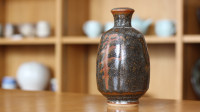
A display of works from the Bradshaw-Bubier studio pottery collection.
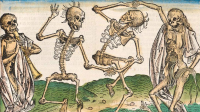
How we can develop ‘death activism’ – a variety of tactics and posthuman practices which celebrate death, its inevitability, its forms, from the slow to times of crisis, and how can trauma and mourning emerge as their own forms of expression, or even activism?
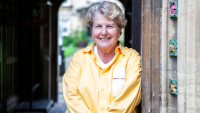
We are delighted to welcome Sandi Toksvig OBE as our speaker for Wolfson's prestigious Lee Lecture this year.

Join us for the 2024 Wolfson Research Event: an interdisciplinary academic conference organised by students to showcase the diversity of the research carried out by Wolfson students.
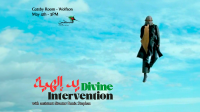
Screening of Elia Suleiman’s Divine Intervention, in conversation with assistant director Rania Stephan.







